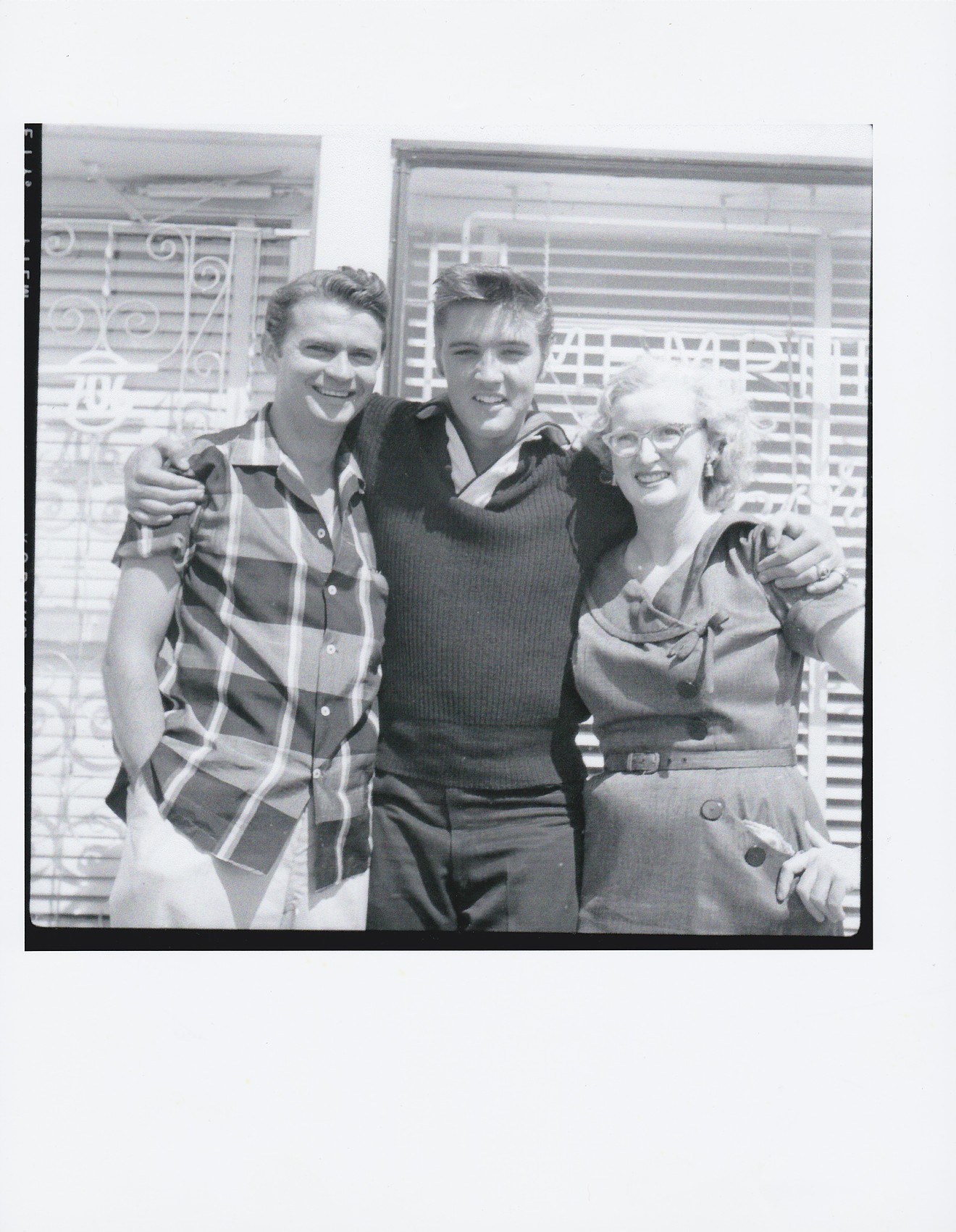On that short list is Ed Ward. His work has appeared for decades in Rolling Stone, The Wall Street Journal, The New York Times and countless other publications. He’s been the “rock and roll historian” on NPR Radio’s “Fresh Air” for more than 30 years while penning numerous books, including a recently reissued bio on tragic bluesman Michael Bloomfield.
Looming largest in his book
Now the Austin-based scribe is revisiting the subject — but in a wholly new way — with the ambitiously titled The History of Rock & Roll Volume One: 1920-1963 (460 pp., Flatiron Books, $35). This history marches briskly (very briskly), throwing out hundreds of names of performers and music-industry vets, and songs in tracing the development of the music and the careers of performers. He’ll appear at Cactus Music this Saturday for a 1 p.m. book signing.
“I did it that way on
Ward’s narrative begins decades before the single “Rocket 88” and the film Rock Around the Clock to show the roots of rock in blues, country and R&B. From those beginnings, it’s a dizzying ride in which big names like Chuck Berry, Elvis, the Beatles and the Beach Boys share page space with obscure acts like Nervous Norvus, whose schtick was his tentative delivery; Esquerita, the drag queen who gave Little Richard early piano lessons; and Dickie Goodman, a producer who made novelty records with snippets of previously popular songs, thereby increasing interest and sales in older tunes.
“I stayed away from going too much in the ‘Great Performer’ [narrative] model," Ward notes. "I mean, I couldn’t match Peter Guralnick’s
Ward says that one of his primary sources of research was Billboard magazine, not only for the rankings of tunes that were on the
There's also ruminations on the development of rock music from when it was thought of as only a passing teenage fad and what Ward calls “disposable art” to a lasting legitimacy.

Berry Gordy Jr. in front of Hitsville, U.S.A. The action was in the basement studio.
The Detroit News
Across the Pond, Ward also dissects the impact that American music – and especially blues and R&B – made on a group of teenagers hungry for something “real” to listen to outside the bland teen pop idols out of the Larry Parnes stable and trad jazz units. These teenagers, with last names like Lennon, McCartney, Jagger, Richards, Clapton, Davies, Townsend and others, would put their own spin on it and bring it right back to the U.S.
“And I appreciate the opportunity to correct some of the mistakes and expand on some of the stories that have happened since Rock of Ages,” Ward says. “Many of the players have been the subjects of great
He illustrates that point by noting that when he wrote his portion of Rock of Ages, the only book reference to the Bihari Brothers, who founded Modern Records, that he could find (in Honkers and Shouters by Arnold Shaw) noted that they were of Lebanese descent. A couple of years later, Ward received a letter with the return address of Modern Music. It was from Joe Bihari.
“I didn’t even know he was still alive! But the letter said, ‘My father always told us, don’t be ashamed of being Hungarian!’” Ward laughs. “And I wrote him back and said I would fix it for the next edition. Joe was a living admonishment not to make stupid mistakes as a writer!” As the Biharis have been the subject of much music journalism since then, it’s an error Ward says he would never make today.
Houston makes a few appearances in the book: as the city where Johnny Ace committed accidental (or not) suicide backstage at the Houston Civic Auditorium, and as the home of Don Robey’s
Houston was also home to D Records, which spun off Gold Star Records, one of whose partners – Pappy Daily – formed Starday Records. That's the same Daily whose visage graces a wall at Cactus Records and who will be staring down at Ward during his signing.
The book ends with the fairly neat division marker to the next volume, with the death of JFK and just before the arrival of the Beatles to U.S. shores. That means Ward has an awful lot to write about in his proposed Volume Two, which will cover the years 1964-2000. He says his story will stop at that latter year given the rise of Napster and a seismic shift in the model of the music business, with music no longer the center of teen life and culture. And he’ll bring in aspects of music that affected rock outside of the U.S. and England, citing reggae as an example.
But he hasn’t started that book yet, waiting to see how the newly released Volume One is received. He’s also got to sift through whatever of his own archives and music collection survived the flooding of his home, caused by a faulty toilet valve that soaked the place while he was away.
“I’m not ready to sit down and start that book just yet,” he says. “It’s been a pain in the rear dealing with all of this!”
Ed Ward will sign and talk about The History of Rock & Roll Volume One: 1920-1963 at 1 p.m. Saturday at Cactus Music, 2110 Portsmouth.









